Originally posted August 4, 2022
Las Vegas Convention Opens With a ‘Finally’
Is Quality of the News Media in Decline?:
‘Golden Era’ of ‘Objectivity’ Up for Debate
Media Pay Tribute to Two Who Went Boldly
Diversity Found Wanting on J-Prize Boards
News Outlets File Suit for Uvalde Records
In Summer Heat Wave, Prisoners Feel ‘Baked Alive’
Shaun King Dogged by $40,000 Payment
Short Takes: Gilbert Cruz; grants available for strengthening community ties; new Law and Justice Journalism Program; Detroit museum and nation’s first Black-owned TV station; Duff Wilson and Aaron Bobrow-Strain; Black journalists snubbed; Attica prison uprising; Sheila D. Brooks; Iranian American journalist targeted; Henry Louis Gates and dictionary of African American English; Sahaj Kaur Kohli, Damon Young, Elaine Welteroth and Jules Terpak; Kenya and Facebook hate speech.
Homepage photo: Nora Lopez, president of the National Association of Hispanic Journalists, left, with Dorothy Tucker, president of the National Association of Black Journalists, in Las Vegas, via Twitter.
[btnsx id=”5768″]
Las Vegas Convention Opens With a ‘Finally’
By Karen Robinson-Jacobs
Black and Latino journalists, excited by being able to gather in person after two years of caution in light of the COVID pandemic, nearly filled a ballroom at Caesar’s Palace in Las Vegas Wednesday for the opening ceremony of the joint conference of the National Association of Black Journalists and the National Association of Hispanic Journalists.
“Finally,” said NABJ President Dorothy Tucker. Nora Lopez, president of NAHJ, told the crowd, “We are powerful forces as Black and brown journalists united with purpose in our storytelling, and elevating our membership into leadership roles to create lasting change.”
Lopez referred to “record” numbers, but NABJ’s spokesperson would not release an attendance figure. However,
Tucker told the Las Vegas Review-Journal that at least 5,000 were expected, and NABJ board member Jarrad Henderson tweeted after a Tuesday meeting of the NABJ board that “4,500 of our cousins would come through” Caesar’s Palace.
In her welcome, Lopez called for support for imprisoned Guatemalan journalist José Rubén Zamora Marroquín, who reportedly has gone on a hunger strike. International organizations are protesting what they call his arbitrary detention for political purposes. Zamora is founder and president of the newspaper elPeriódico, and his supporters say he is being persecuted in retaliation for his investigative work on corruption and other issues of public interest in Guatemala.
The five-day NABJ/NAHJ conference, dubbed “Changing The Game, Rompiendo Barreras [Breaking Barriers]” includes a job fair with 120 booths and nearly 90 employers.
The two organizations had announced that “Masks are required for convention activities. Be prepared to social distance!” and imposed a vaccination verification system for registration (video).
However, efforts to remind the crowds to mask up met with mixed results. While maybe half the crowd in the small breakout sessions wore masks, at the evening’s opening ceremony many more were on display. Still, a video of the opening night crowd drew one Facebook viewer to remark, “Hardly a mask in sight.” N95 masks were handed out before the crowd surged into a much smaller set of rooms for a Disney-sponsored reception.
At the opening ceremony, the student chapter affiliate on the campus of the University of North Texas in Denton was named NABJ Student Chapter of the year. The national organization cited its ambitious collaborations with other groups on campus. NAHJ’s student chapter of the year award went to DePaul University in Chicago.
NABJ Chapter of the Year honors went to the Chicago chapter; NAHJ’s counterpart was its New England chapter.
Karen Robinson-Jacobs is a Fellow with Type Investigations. She can be reached at krobjacobs (at) gmail.com
Is Quality of the News Media in Decline?
Host Dan Schneider titled his conversation, “The Decline of the Media.” (Credit: YouTube)
‘Golden Era’ of ‘Objectivity’ Up for Debate
Have the news media strayed too far from the golden days of previous eras, when the news was delivered with “objectivity,” just the facts?
Or was that “golden era” not so golden after all, with inclusiveness a long way off and, given that, the idea of “objectivity” problematic?
Those questions were on the table when Dan Schneider, this columnist and David Levine took up the topic for Schneider’s arts website, Cosmoetica. Levine, who was on the Zoom from Israel, is a marketing man soon to retire as an adjunct faculty member at Rutgers University.
Levine took the position that the media indeed have strayed. This columnist contended that greater inclusiveness and diversity of voices have made the media better, and that diversity makes it more likely there will be questions about which facts are chosen.
Moderator Schneider titled his discussion “The Decline of the Media” and cited Fox News, cable television news, the internet, social media and political agendas among the culprits, along with “outside factors — such as the decline of reading and the lack of good scientific education, to basic grammar that displays a bias in media and why so few trust the media.” He also referenced a video titled “Why News Used To Have Less Bias,” which contrasted today’s media with that of the 1960s.
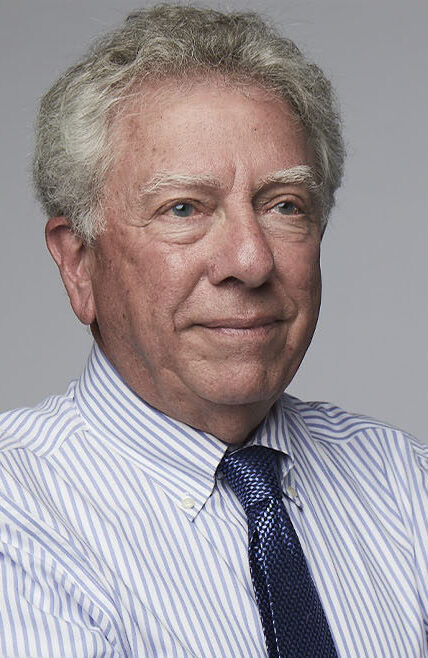 Before the session, this columnist consulted Hank Klibanoff (pictured), co-author of the Pulitzer Prize-winning “The Race Beat: The Press, the Civil Rights Struggle, and the Awakening of a Nation,” and Bill Plante, retired journalist and correspondent for CBS News, who joined the network in 1964.
Before the session, this columnist consulted Hank Klibanoff (pictured), co-author of the Pulitzer Prize-winning “The Race Beat: The Press, the Civil Rights Struggle, and the Awakening of a Nation,” and Bill Plante, retired journalist and correspondent for CBS News, who joined the network in 1964.
Klibanoff forwarded a section of “The Race Beat” quoting the legendary Ralph McGill, anti-segregationist editor of the Atlanta Constitution during the civil rights movement:
“Certainly, reporters had to try to be fair, McGill felt, but he did not see the point of purely objective news presentations if that meant the truth got lost in the process. Objectivity, he believed, was an anachronistic antidote that had emerged in earlier days, when publishers had been wild and reckless in pushing their biases into the newspapers. It had evolved into a formula of printing all sides of the story — in the same number of words or paragraphs — and leaving readers to make their own choices.
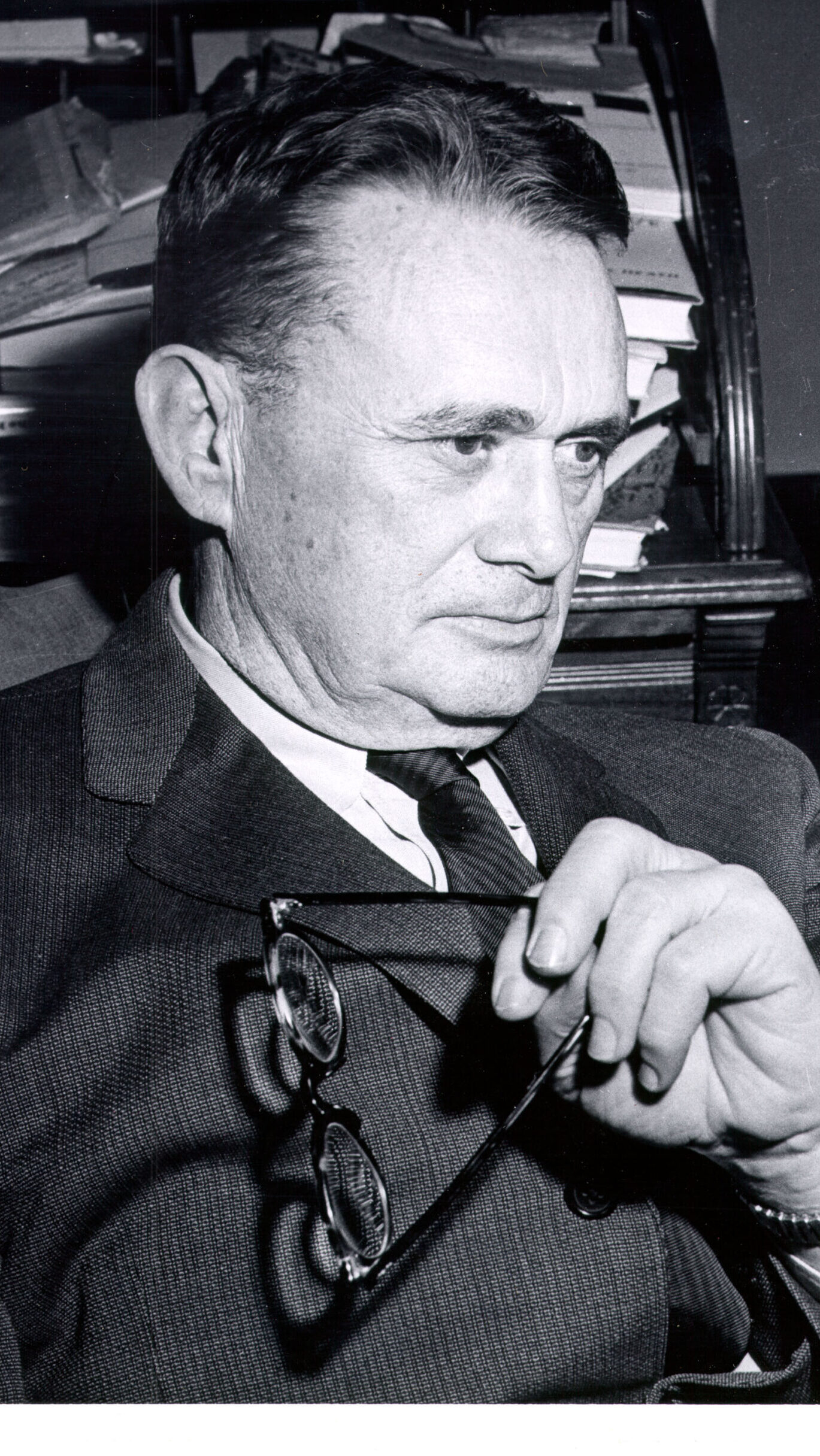 McGill (pictured) felt, the goal of objectivity had devolved to the point where newspapers had become neutered. If a public figure said something that was untrue or mischaracterized a situation, McGill felt, most newspapers wouldn’t report the falsity unless the reporter could get someone else to point it out.
McGill (pictured) felt, the goal of objectivity had devolved to the point where newspapers had become neutered. If a public figure said something that was untrue or mischaracterized a situation, McGill felt, most newspapers wouldn’t report the falsity unless the reporter could get someone else to point it out.
“And if that someone else stretched the truth, McGill said, newspapers devoted to blind objectivity found themselves in a bind, printing two falsities. “If Citizens’ Council leaders in a town, for example, said they were not putting economic pressure on Negroes to withdraw their names from petitions and the newspaper had incontrovertible proof that they were, why were newspapers so reluctant to report it? Why did they have to wait until they found someone who was willing to say it on the record? Why did they fall back on the conventional thrust and parry of grouping the allegation and denial all in the first couple of paragraphs, which steers readers away from the truth, not toward it?”
Klibanoff added, “I can tell you that in portraying Ralph McGill’s mental processes on objectivity, I was also capturing what the Dominant and Recessive Genes of the Philadelphia Inquirer — Roberts and Foreman — thought. No surprise I came out of that newsroom also seeing the perils of strict ‘objectivity.’ ”
 Plante (pictured), now 84, said, “Seems to my (fading) memory that in the 60’s, broadcast journalism took itself very seriously – held it up to newspaper standards. But that didn’t make it any less dismissive of race and people of color on an everyday basis.
Plante (pictured), now 84, said, “Seems to my (fading) memory that in the 60’s, broadcast journalism took itself very seriously – held it up to newspaper standards. But that didn’t make it any less dismissive of race and people of color on an everyday basis.
“On the other hand, stories like the Vietnam war and the Civil Rights movement were covered as serious news. I covered both, and remember that at the time, I believed they were very important for the national dialogue.
“I certainly agree that the quality of tv news has declined since then, but that’s for many reasons, as the moderator notes.
“So, kinda depends on what you mean by ‘objective.’ Did everyday coverage fairly represent the population? No. But some major issues were covered.”
Asked how the quality of television news had declined, Plante said, “The late Johnny [R.W.] Apple of The NY Times worked for NBC Nightly News in the 60’s. He said that he left when they began insisting that sound bites couldn’t be longer than 20 seconds. It’s been downhill from there!
“TV News was serious way back then — not socially ‘woke,’ but believing that it had to cover national and world affairs.
“But over the years programmers measured audience reaction and gradually stopped running stories no one seemed to care about. And over time, the more sensational the story, the more likely it would be programmed. The advent of social media has meant that anything with video is likely to show up on network news.
“There have been attempts to increase the quality of coverage — when Scott Pelley anchored the CBS Evening News he covered a lot more overseas news. PBS NewsHour routinely does as well — and is often criticized for being boring.
“What we have 50 years later on most news broadcasts is a headline service.”
Bill Russell enters the Naismith Memorial Basketball Hall of Fame as a coach, class of 2021 (Credit: YouTube)
Media Pay Tribute to Two Who Went Boldly
“We lost two of my childhood heroes on Sunday, two indomitable members of the generation of Black pioneers who both, in their separate fields, changed the cultural landscape of the nation,” Eugene Robinson wrote Monday in the Washington Post.
 “Bill Russell was arguably the greatest and certainly the most transformational player and coach in National Basketball Association history, a man whose tremendous physical gifts were overshadowed by his fierce intelligence. Nichelle Nichols (pictured), who portrayed Lt. Uhura on the original ‘Star Trek,’ was a Black actress in a non-racialized role who showed that African Americans, too, could ‘boldly go where no man has gone before.’ “
“Bill Russell was arguably the greatest and certainly the most transformational player and coach in National Basketball Association history, a man whose tremendous physical gifts were overshadowed by his fierce intelligence. Nichelle Nichols (pictured), who portrayed Lt. Uhura on the original ‘Star Trek,’ was a Black actress in a non-racialized role who showed that African Americans, too, could ‘boldly go where no man has gone before.’ “
Robinson wasn’t the only journalist to relate the cultural significance of the twos. “Nichelle Nichols and Bill Russell reminded America that it could do better. By going boldly where few Americans had gone before, they defined what this country can be,” the Pittsburgh Post-Gazette editorialized Wednesday.
Amid the tributes and analyses was this remembrance of how Russell dealt with one journalist:
 “I was a terrified young reporter for The New York Post in the late 1970s when my editor ordered me to ‘get Russell’ for an assigned story, Harvey Araton (pictured) wrote in the New York Times. “I found him in the media dining area at the old Spectrum arena in Philadelphia on a Sunday afternoon before a game he was working as network analyst.
“I was a terrified young reporter for The New York Post in the late 1970s when my editor ordered me to ‘get Russell’ for an assigned story, Harvey Araton (pictured) wrote in the New York Times. “I found him in the media dining area at the old Spectrum arena in Philadelphia on a Sunday afternoon before a game he was working as network analyst.
“As I hopelessly stammered through my introduction, Russell looked up from a plate of food and said nothing. Seconds felt like hours until Billy Cunningham, the 76ers coach, leaned over and came to my rescue. ‘He’s from Vecsey’s paper,’ Cunningham told Russell, referring to Peter Vecsey, the widely known N.B.A. columnist.
“This apparently was a useful reference in what was a far more insular N.B.A. environment. Russell nodded and said, ‘Wait outside for me.’ So I parked myself in the first row of seats behind the broadcast table. Ten minutes became 20, then 30, then 60 after Russell took a seat, donned his headset for microphone checks and shuffled through voluminous game notes and stats.
“I was literally sweating, and figuratively steaming. Finally, Russell summoned me, shook my hand and said, ‘Thank you for waiting and respecting my work.’
“Lesson learned: Patience may be the most well-cited virtue, but in the interests of professional achievement, so is preparation. . . .”
Students Find Meager Diversity on Prize Boards
“The first Asian American ever elected to the Pulitzer Prize Board was Viet Thanh Nguyen, (pictured)” Brammhi Balarajan, Yiwen Lu, Bahar Ostadan, Omar Rashad and Samson Zhang wrote Saturday for AAJA Voices, the student convention newspaper of the Asian American Journalists Association.
“But he remains alone. Nguyen’s election came only in 2020, more than a century after the Pulitzer Prizes were first awarded, honoring the best in journalism, literature and the arts. Nearly two years later, Nguyen remains the only Asian American in that room.
The student reporters also wrote, “Like Nguyen, other award judges have found themselves the sole member of their race or ethnic group.
“We requested the race and ethnicity of the 66 judges making the final decisions for four of journalism’s most prestigious awards this year: the Pulitzer Prizes, the Peabody Awards, the Gerald Loeb Awards and the Livingston Awards.
“For those who didn’t respond, we verified race and ethnicity using published sources of information, such as news stories. We were unable to verify the background of 23 judges. . . .”
“Of the four awards we reviewed, the Peabody has the largest proportion of judges of color. Six people serving on the Peabody Awards’ Board of Jurors are Black, four are Asian American, and one is Middle Eastern. . . .”
This year’s group of Pulitzer winners was among the most diverse. At a Journal-isms Roundtable in May on the Pulitzer winners and finalists, Kevin Merida, a board member who is African American and executive editor of the Los Angeles Times, said the jury pools were, “I believe . . .the most diverse that we’ve ever had. . . . When you have a diverse group of people looking at the work, you’re probably going to get a wider consideration of the work. . .. The board is always looking at diversity, and in all the ways that that manifests itself.”
News Outlets File Suit for Uvalde Records
“More than a dozen news organizations filed a lawsuit against the Texas Department of Public Safety on Monday, accusing the agency of unlawfully withholding public records related to the May school shooting in Uvalde,“ Zach Despart of the Texas Tribune reported in partnership with ProPublica Monday. Both news organizations are parties to the suit.
The news organizations “have each filed requests for information detailing the response to the massacre by various authorities under the Texas Public Information Act. ProPublica and the Tribune filed about 70 records requests with multiple agencies.
“DPS has refused to release records sought in the requests, even as the agency has selectively disclosed some information through public testimony, third-party analyses and news conferences.
“ ‘In the immediate aftermath of the tragedy, and continuing throughout the ensuing two months, DPS has declined to provide any meaningful information in response to the Requests regarding the events of that day — despite the awful reality that some 376 members of law enforcement responded to the tragedy, and hundreds of those were in the school or on school property not going into the unlocked classroom where the gunman continued killing helpless youth,’ the lawsuit states. . . .”
In Summer Heat Wave, Prisoners Feel ‘Baked Alive’
“This summer is set to be among the top 10 hottest on record with heat waves melting roads across Europe, causing thousand-acre fires in Texas and California, scorching people across the globe,” Victoria Law reported July 27 for Truthout. “Across the country, as temperatures soar, people behind bars describe feeling as if they are melting or being baked alive in units that frequently lack air conditioning or cooling mechanisms.
“Temperatures in parts of Texas have soared to over 100 degrees every day for the past week — with no relief in sight. The state has the tenth-highest incarceration rate in the nation, with 840 of every 100,000 people behind bars. While Texas state prisons have air conditioning in their administrative, education and medical areas, nearly 70 percent lack air conditioning in the housing units (which can incarcerate over 120,000 people).”
Alleen Brown reported for The Intercept in February that nine of every 10 of the state’s carceral facilities are in places where the heat index exceeds 90 degrees more than 50 days each year.
Shaun King Dogged by $40,000 Payment
 “Shaun King’s social justice PAC is going to the dogs. Literally,” Chuck Ross wrote Monday for the conservative Washington Free Beacon, in a story that became front-page banner headlines in the New York Post.
“Shaun King’s social justice PAC is going to the dogs. Literally,” Chuck Ross wrote Monday for the conservative Washington Free Beacon, in a story that became front-page banner headlines in the New York Post.
“Grassroots Law PAC, which the progressive grifter founded to elect soft-on-crime local officials, paid roughly $40,000 since December to the California-based Potrero Performance Dogs, according to campaign finance disclosures. The payments are labeled for ‘contractor services,’ making their purpose difficult to discern. But days after a $30,650 payment in February, King welcomed a ‘new member of the King family’: an award-winning mastiff bred by Potrero named Marz.”
King, an activist and journalist, has written regularly for the Daily News in New York and the Intercept.
“The Daily Beast reported in 2020 how King raised millions of dollars for his ambitious reboot of Frederick Douglass’ newspaper The North Star failed to deliver on many of the promises he made,” Corbin Bolies reported Wednesday for the Daily Beast, writing that King “threatened to dox two New York Post reporters over a series of unflattering stories.”
Short Takes
 “Gilbert Cruz (pictured) our Culture editor, will be the next Books editor of The Times,” the New York Times announced July 28. “Now he’ll move to Books to focus his energies on three important pillars of coverage. The first is to reimagine The New York Times Book Review, the nation’s last stand-alone newspaper book-review section, for the digital age. The second is to increase and embolden our reporting on and criticism of ideas and intellectual life, the publishing world and all that lives within it. And the third is to build new muscles in service journalism that will help our readers choose their next books with ease and joy. . . “
“Gilbert Cruz (pictured) our Culture editor, will be the next Books editor of The Times,” the New York Times announced July 28. “Now he’ll move to Books to focus his energies on three important pillars of coverage. The first is to reimagine The New York Times Book Review, the nation’s last stand-alone newspaper book-review section, for the digital age. The second is to increase and embolden our reporting on and criticism of ideas and intellectual life, the publishing world and all that lives within it. And the third is to build new muscles in service journalism that will help our readers choose their next books with ease and joy. . . “
- “The American Press Institute is launching a small grants initiative to help newsrooms improve and deepen their relationships with their communities in this year’s elections,” the organization announced Wednesday. “News organizations that have ideas for ways to forge stronger community relationships through deep listening and engaged reporting may apply for these grants of $1,500 to $5,000 per newsroom through August 17, 2022. . . .”
- The Law and Justice Journalism Program, “a new resource for reporters who cover complex issues involving crime and the legal system,” launched in Washington Wednesday. “We will host short, virtual panels, open to all reporters throughout the year,” an announcement said. “Topics include how to navigate public records requests, interpret and explain crime data, understand legal concepts in criminal law, and report on violence and its causes. The panelists will be experienced journalists, producers, and editors, including Astead Herndon (NYTimes), Robert Greene (LA Times), Jessica Pishko (freelance), Dwayne Betts (Yale Law School), Josie Duffy Rice (You’re Wrong About), and Maurice Chammah (Marshall Project). . . . Second, LJJP is beginning a one-year fellowship program that pairs 15 early-career journalists in print and television news with experienced journalists – mentors – who have covered the legal system in a comprehensive way. . . .”
- “Many people don’t know it but WGPR was the very first Black owned and operated television station in the entire nation right here in Detroit,” Joe Spencer, president of the WGPR Historical Society, told WDIV-TV’s April Morton Monday. Visitors to the William V. Banks WGPR Broadcast Museum “can learn about this historic station, all [its] programing and how the station helped launch some big time news broadcasters. The WGPR Historical Society is hoping to raise funds to build a functioning news studio. . . .”
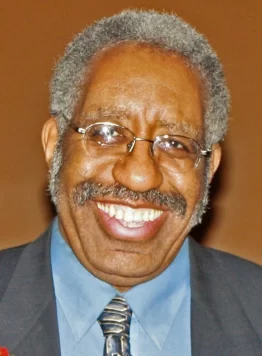 “Some Black journalists complained of being snubbed during this year’s Women’s National Basketball Association All-Star Game and its events held in Chicago last month,” Nicole Major reported Monday for Marcom Weekly. “The League held its contest and skills challenge at the McCormick Place Convention Center on July 9 and the All-Star Game at the Wintrust Arena, July 10. Charles Hallman (pictured), a Hall of Famer and award-winning sports columnist for the Minnesota Spokesman-Recorder (MSR), said that Black-owned media journalists like himself didn’t have the same access to courtside seating during the games provided to other media. Hallman voiced his gripe in a column published by the MSR on July 20. . . .” Hallman was inducted in May into the into the United States Basketball Writers Association Hall of Fame for his lifetime of women’s college basketball coverage.
“Some Black journalists complained of being snubbed during this year’s Women’s National Basketball Association All-Star Game and its events held in Chicago last month,” Nicole Major reported Monday for Marcom Weekly. “The League held its contest and skills challenge at the McCormick Place Convention Center on July 9 and the All-Star Game at the Wintrust Arena, July 10. Charles Hallman (pictured), a Hall of Famer and award-winning sports columnist for the Minnesota Spokesman-Recorder (MSR), said that Black-owned media journalists like himself didn’t have the same access to courtside seating during the games provided to other media. Hallman voiced his gripe in a column published by the MSR on July 20. . . .” Hallman was inducted in May into the into the United States Basketball Writers Association Hall of Fame for his lifetime of women’s college basketball coverage.
- “New York officials are cutting and inserting pages in a book about the state’s most notorious prison in an attempt to resolve a festering First Amendment dispute,” Benjamin Weiser reported Monday for the New York Times. “The historian Heather Ann Thompson won acclaim for her Pulitzer Prize-winning ‘Blood in the Water,’ a deeply reported investigation into the deadly 1971 Attica uprising and its legacy. But since the book’s publication in 2016, one group had been forbidden from reading it: people incarcerated at the Attica Correctional Facility and other New York state prisons. Ms. Thompson sued in March, seeking to reverse the ban. . . .”
 A man was arrested on Friday after he was found with a loaded AK-47 assault rifle outside the Brooklyn home of an Iranian American journalist who was the target of an international kidnapping plot said to be orchestrated by an Iranian intelligence network last year, according to the journalist, a court document and a person briefed on the matter,” Benjamin Weiser reported Sunday for the New York Times. “The journalist, Masih Alinejad (pictured), 45, has been outspoken in her criticism of the Iranian government. . . .”
A man was arrested on Friday after he was found with a loaded AK-47 assault rifle outside the Brooklyn home of an Iranian American journalist who was the target of an international kidnapping plot said to be orchestrated by an Iranian intelligence network last year, according to the journalist, a court document and a person briefed on the matter,” Benjamin Weiser reported Sunday for the New York Times. “The journalist, Masih Alinejad (pictured), 45, has been outspoken in her criticism of the Iranian government. . . .”
- A “new dictionary — the Oxford Dictionary of African American English — will attempt to codify the contributions and capture the rich relationship Black Americans have with the English language,” Elizabeth A. Harris reported July 21 for The New York Times. “A project of Harvard University’s Hutchins Center for African and African American Research and Oxford University Press, the dictionary will not just collect spellings and definitions. It will also create a historical record and serve as a tribute to the people behind the words, said Henry Louis Gates Jr. (pictured), the project’s editor in chief and the Hutchins Center’s director. . . .” (video added Nov. 3)

The Washington Post is introducing columns from left to right, “Brown Girl Therapy’s” Sahaj Kaur Kohli; author and columnist Damon Young, co-founder of the website Very Smart Brothas;Elaine Welteroth, a former editor-in-chief of Teen Vogue; and TikTok content creator Jules Terpak, the Post announced Tuesday. “This greatly expands The Post’s advice offerings, which include nationally syndicated writer Carolyn Hax’s column, and presents a new slate of personalities who represent the diverse experiences and backgrounds of Post readers and are ready to weigh in on the issues that affect readers’ lives today, including mental health, race, identity, digital culture and more. . . .”
- “Kenya’s national cohesion watchdog threatened to suspend Facebook from the country Friday if it doesn’t mitigate hate speech ahead of the country’s general elections next month,” Dell Cameron reported for Gizmodo. “The regulator has given the company one week to remediate the problem, which included Facebook’s approval of ads advocating for ethnic cleansing. Human rights organizations and the Facebook whistleblower are calling on Facebook to immediately suspend all advertising in Kenya and take other emergency steps.”
‘[btnsx id=”5768″]
To subscribe at no cost, please send an email to journal-isms+subscribe@groups.io and say who you are.
Facebook users: “Like” “Richard Prince’s Journal-isms” on Facebook.
Follow Richard Prince on Twitter @princeeditor
Richard Prince’s Journal-isms originates from Washington. It began in print before most of us knew what the internet was, and it would like to be referred to as a “column.” Any views expressed in the column are those of the person or organization quoted and not those of any other entity. Send tips, comments and concerns to Richard Prince at journal-isms+owner@
View previous columns (after Feb. 13, 2016).
View previous columns (before Feb. 13, 2016)
- Diversity’s Greatest Hits, 2018 (Jan. 4, 2019)
- Book Notes: Is Taking a Knee Really All That? (Dec. 20, 2018)
- Book Notes: Challenging ’45’ and Proudly Telling the Story (Dec. 18, 2018)
- Book Notes: Get Down With the Legends! (Dec. 11, 2018)
- Journalist Richard Prince w/Joe Madison (Sirius XM, April 18, 2018) (podcast)
- Richard Prince (journalist) (Wikipedia entry)
- February 2018 Podcast: Richard “Dick” Prince on the need for newsroom diversity (Gabriel Greschler, Student Press Law Center, Feb. 26, 2018)
- Diversity’s Greatest Hits, 2017 — Where Will They Take Us in the Year Ahead?
- Book Notes: Best Sellers, Uncovered Treasures, Overlooked History (Dec. 19, 2017)
- An advocate for diversity in the media is still pressing for representation, (Courtland Milloy, Washington Post, Nov. 28, 2017)
- Morgan Global Journalism Review: Journal-isms Journeys On (Aug. 31, 2017)
- Diversity’s Greatest Hits, 2016
- Book Notes: 16 Writers Dish About ‘Chelle,’ the First Lady
- Book Notes: From Coretta to Barack, and in Search of the Godfather
- Journal-isms’ Richard Prince Wants Your Ideas (FishbowlDC, Feb. 26, 2016)
- “JOURNAL-ISMS” IS LATEST TO BEAR BRUNT OF INDUSTRY’S ECONOMIC WOES (Feb. 19, 2016)
- Richard Prince with Charlayne Hunter-Gault, “PBS NewsHour,” “What stagnant diversity means for America’s newsrooms” (Dec. 15, 2015)
- Book Notes: Journalists Follow Their Passions
- Book Notes: Journalists Who Rocked Their World
- Book Notes: Hands Up! Read This!
- Book Notes: New Cosby Bio Looks Like a Best-Seller
- Journo-diversity advocate turns attention to Ezra Klein project (Erik Wemple, Washington Post, March 5, 2014)
When you shop @AmazonSmile, Amazon will make a donation to Journal-Isms Inc. https://t.co/OFkE3Gu0eK
— Richard Prince (@princeeditor) March 16, 2018
![]()

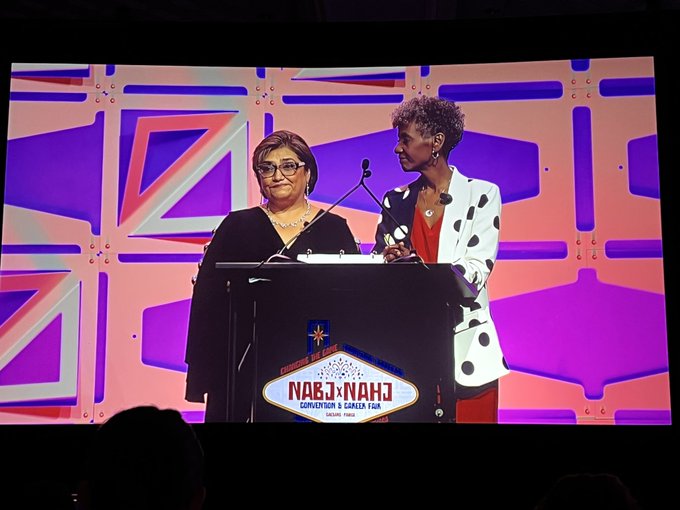
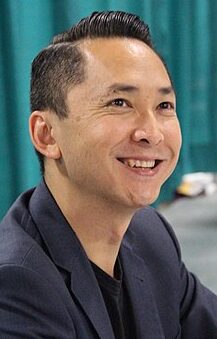 “
“
1 comment